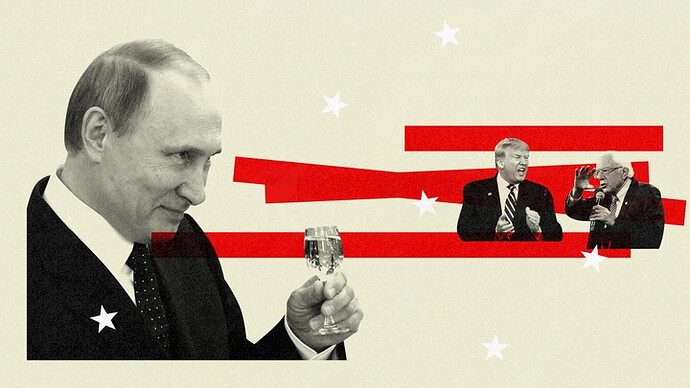“Americans don’t need Russia’s polarizing influence operations. They are plenty good enough at dividing themselves,” writes the Atlantic’s national security reporter, arguing that “the new face of Russian propaganda” is just a carefully-curated selection of inflammatory content made by Americans themselves.
Citing the Mueller investigation, the article notes the irony that America’s two front-runners for the presidency are now “both candidates Russian trolls sought to promote in 2016,” calling them “far apart ideologically but nearly equally suited to the Kremlin’s interests, both in being divisive at home and in encouraging U.S. restraint abroad.” In 2016, the Kremlin invested heavily in creating memes and Facebook ads designed to stoke Americans’ distrust of the electoral system and one another… The Russian government is still interfering, but it doesn’t need to do much creative work anymore… Americans are now the chief suppliers of the material that suspected Russia-linked accounts use to stoke anger ahead of U.S. elections, leaving Russia free to focus on pushing it as far as possible. Darren Linvill, a Clemson University professor who has studied Russian information operations, has seen Russian trolls shift tactics to become “curators more than creators,” with the same goal of driving Americans apart. “The Russians love those videos,” he said, “because they function to make us more disgusted with one another…”
[The article cites actions by Russia’s “Internet Research Agency” in America’s 2018 elections.] The organization was still creating memes, and it got an even bigger budget, according to Graham Brookie, the director of the Digital Forensic Research Lab at the Atlantic Council think tank. But it also began using more of what Americans themselves were putting on the internet, seizing on divisive debates about immigration, gun control, and police shootings of unarmed black men, using real news stories to highlight genuine anger and dysfunction in American politics… Russian trolls can largely just watch Americans fight among themselves, and use fictitious Twitter personas to offer vigorous encouragement… They will keep prodding the same bruises in American society, or encouraging cries of electoral fraud if there’s a contested Democratic primary or a tight general election.
Alina Polyakova, the president and CEO of the Center for European Policy Analysis, tells the Atlantic that “a U.S. that’s mired in its own domestic problems and not engaged in the world benefits Moscow.”







 !
!